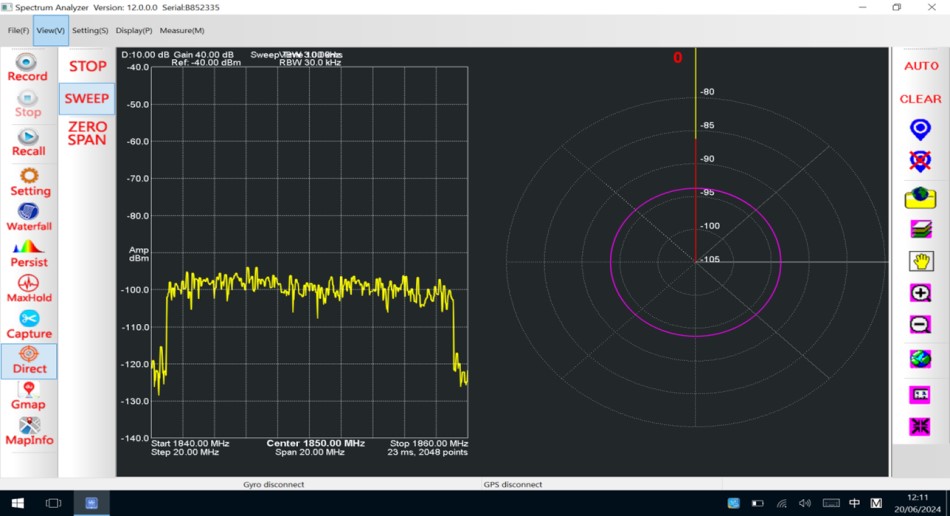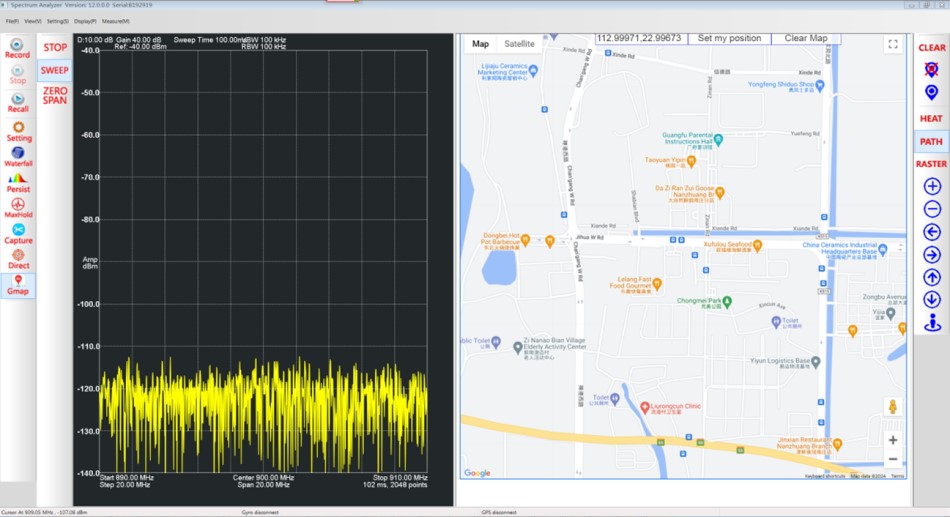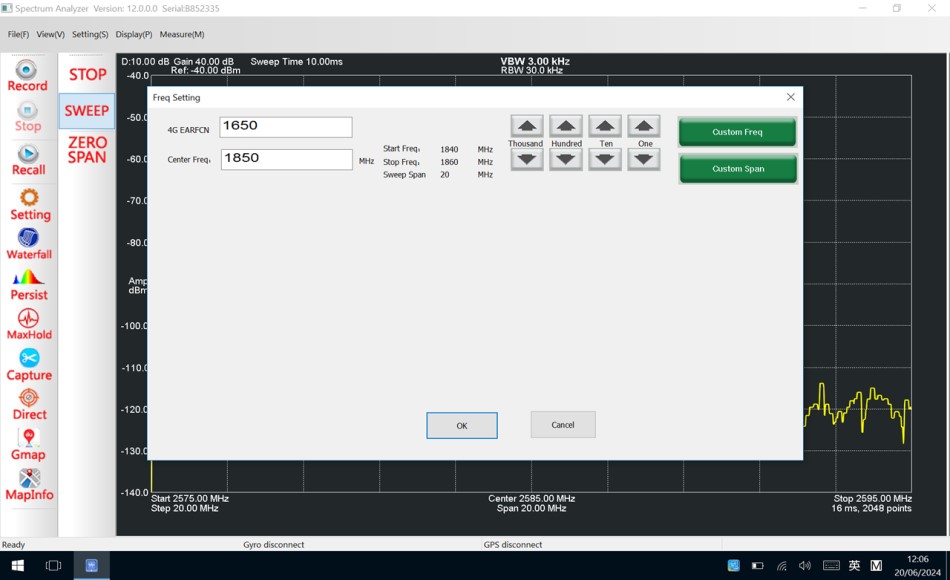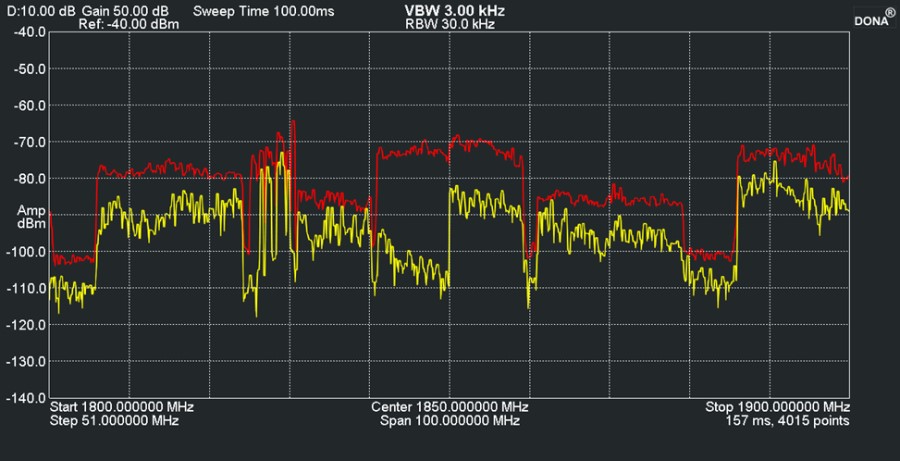Portable RF Direction Finder (DFP601)
Introduction
The portable radio frequency direction finder is a compact system designed for detecting and pinpointing RF interference sources. It features a host device with a touchscreen interface and a directional antenna, integrated with advanced embedded software. Utilizing cutting-edge spectrum analysis and proprietary algorithms, the system identifies interference and accurately locates its source.
The system supports a detection frequency range of 100 MHz to 6 GHz, with a scanning bandwidth of up to 100 MHz. It can precisely measure signal directions from 700 MHz to 6 GHz. Offering high performance and user-friendly operation, this instrument is ideal for direction finding, tracking, and locating continuous wave, fast pulse signals, or interference across various communication systems and frequency bands.
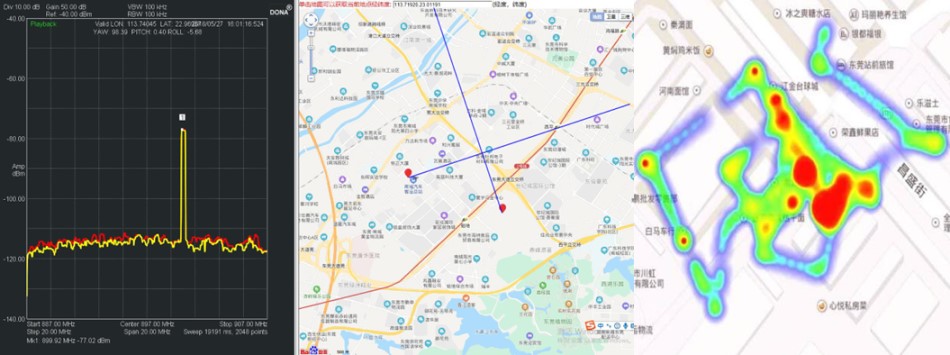
Key Functions
1. Real-time spectrum analysis
By leveraging the capabilities of digital fluorescent spectrograms and seamless waterfall plots, the system can detect transient signals, distinguish smaller signals hidden beneath stronger ones, and monitor signal variations over time.
2. Interference analysis and positioning
Equipped with radar charts and multi-point positioning, the system accurately locates interference or unknown signal sources.
3. Max hold function
The system captures all activities within the frequency band, displaying the maximum signal envelope using vector graphics and real-time signal activity with vectors. As this operates in accumulation mode, users can clear the spectrum data at any time by selecting "Max Hold" on the detector interface.
4. Screen capture
The test interface supports one-click screenshots.
5. Recording and playback
The system features one-click data recording, analysis, and statistical functions. GPS position recording is also supported.
6. Marker function
Multiple markers are supported simultaneously.
Software Interfaces
